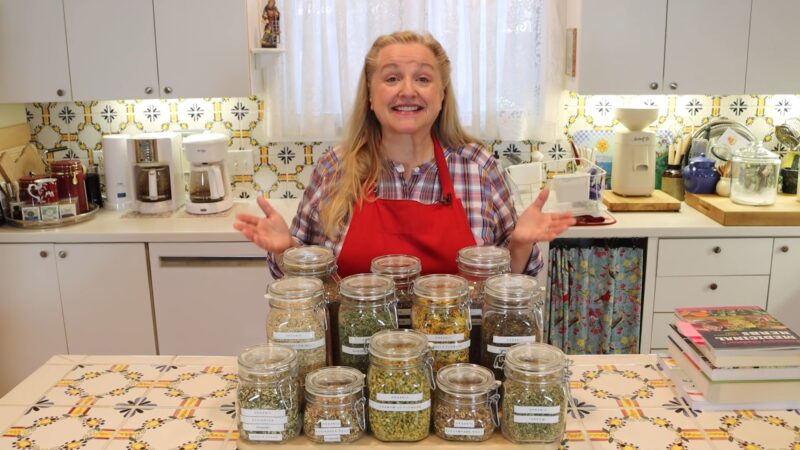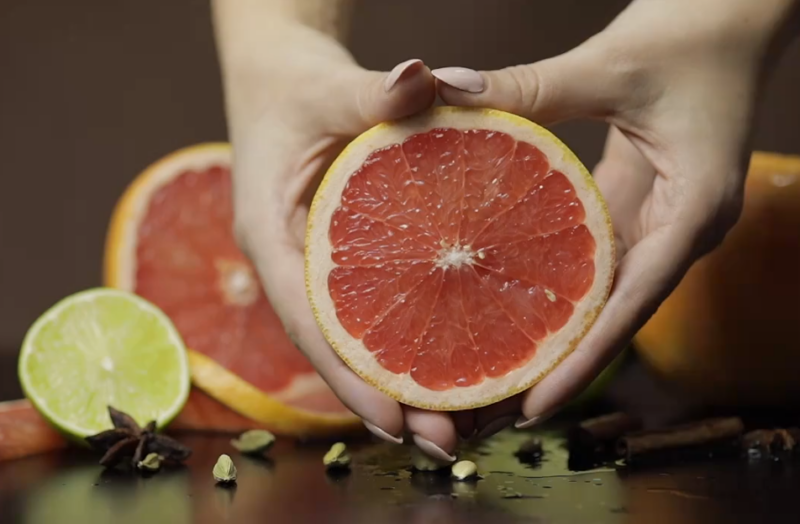Vaginal health is an integral aspect of a woman’s overall well-being, deeply intertwined with her physical, emotional, and psychological states. It’s a topic that, though occasionally veiled in taboo, significantly influences her daily comfort, intimate interactions, and self-assurance.
As we navigate through various life stages, from puberty to menopause and beyond, it’s not uncommon for women to experience fluctuations in vaginal moisture. For some, this can lead to discomfort, a decrease in intimate satisfaction, or even health concerns.
Our aim is to equip every woman with the knowledge to make informed choices, ensuring she feels confident and comfortable in her skin.
5. Hydration and Diet

One of the most foundational ways to support overall health, including promoting natural moisture, starts with what you consume.
Stay Hydrated
The human body is around 60% made of water. Your body’s hydration levels directly influence its ability to produce natural moisture.
When you’re well-hydrated, your body can more easily maintain all its functions, including those associated with personal comfort. Making sure to consume enough water daily is crucial.
The recommendation is usually about eight 8-ounce glasses, but this might vary depending on one’s physical activity and climate. Herbal teas and natural fruit-infused waters are also excellent choices.
Consume Omega-3 Fatty Acids
Omega-3 fatty acids have been shown to help in maintaining healthy skin and mucous membranes, which can positively influence moisture levels. Foods rich in these fatty acids include:
- Flaxseeds
- Walnuts
- Salmon
- Chia seeds
- Eggs from pasture-raised hens*
4. Herbal Solutions

Several herbs have been traditionally used to support female reproductive health, including promoting natural moisture.
Fenugreek
Fenugreek has been used in traditional medicine for its potential benefits in women’s health, including the enhancement of natural moisture. Consuming fenugreek seeds in the form of tea or supplements can be helpful. However, always consult a healthcare provider before starting any new supplement.
Fennel Seeds
Fennel seeds have been known to balance female hormones and can help in maintaining adequate moisture levels. Incorporating fennel seeds into your diet or consuming it as tea might be beneficial. But as with any herb, it’s crucial to ensure there are no contraindications with other medications or conditions.
3. Mindfulness and Relaxation Techniques
The mind plays a pivotal role in bodily responses. By managing stress and anxiety, you can positively impact your body’s natural functions.
Deep Breathing
Stress can impact your body’s natural processes, including moisture production. Deep breathing can help in managing stress and fostering a calm environment for your body.
Taking a few minutes each day to practice deep breathing can not only enhance relaxation but also support your body’s overall health.
Yoga and Meditation
Both yoga and meditation can be beneficial in managing stress and promoting relaxation. These practices foster a deeper connection between the mind and body, which can indirectly influence moisture levels.
Consider incorporating a regular yoga or meditation routine into your schedule. Even a few minutes daily can make a difference.
2. Avoid Irritants
Being cautious about the products you use can prevent unnecessary discomfort and help in maintaining natural moisture.
Choose Natural Products
Many personal care products contain chemicals and irritants that can disrupt the body’s natural balance.
Opt for products that are:
- Paraben-free
- Fragrance-free
- Made with natural ingredients*
Wear Breathable Fabrics
Synthetic materials can trap moisture and create an imbalanced environment. Choosing natural, breathable fabrics like cotton for underwear can help in maintaining comfort and promoting the body’s natural functions.
1. Regular Exercise Benefits

Regular physical activity can boost circulation and improve overall health, which might indirectly promote natural hydration in intimate areas.
Pelvic Floor Exercises
Engaging the muscles in the pelvic region can enhance blood flow and potentially boost moisture.
Cardiovascular Workouts
Activities like jogging, swimming, or dancing can improve blood circulation, which might support the natural processes responsible for vaginal health.
The Reasons Behind Reduced Lubrication

Now, we want to explored the reasons for reduced lubrication.
Hormonal Changes and Imbalances
Hormones significantly influence a woman’s overall health, including the natural moisture of the intimate areas. Fluctuations in these chemicals can result in decreased lubrication.
- Menopause: As women age, estrogen levels decline, especially during menopause. This decrease in estrogen can lead to vaginal dryness and reduced lubrication.
- Pregnancy and Breastfeeding: After childbirth and during breastfeeding, hormone levels can shift, potentially leading to dryness in some women.
Medications and Medical Treatments
Various medications and treatments can impact the body’s natural ability to produce moisture in the vaginal area.
- Antihistamines: Often used for allergies, these can decrease mucus and moisture throughout the body, including the intimate areas.
- Certain Antidepressants: Some mood-regulating drugs can lead to reduced lubrication as a side effect.
- Cancer Treatments: Procedures like chemotherapy and radiation, especially in the pelvic area, can affect vaginal health and moisture levels.
Psychological and Emotional Factors
Emotional well-being is intricately linked to physical health. Psychological factors can play a role in affecting a woman’s natural lubrication processes.
- Stress and Anxiety: Constant stress or anxiety can lead to hormonal imbalances, potentially impacting lubrication.
- Relationship Issues: Emotional disconnect or unresolved issues in a relationship can sometimes lead to reduced arousal and subsequent dryness.
Environmental and External Factors
Outside Influences on Intimate Health: Various external elements can play a part in impacting the natural moisture of intimate areas.
- Douching: Regular douching can disrupt the natural balance of the vagina, leading to dryness.
- Scented Products: Soaps, lotions, and washes with strong fragrances can irritate the vaginal area, potentially reducing its natural moisture.
- Lack of Arousal: Adequate foreplay and emotional connection during intimate moments can influence natural lubrication. A lack of arousal can lead to reduced moisture.
Underlying Health Conditions
Health’s Direct Impact: Certain medical conditions can directly or indirectly affect the hydration in a woman’s intimate areas.
- Sjogren’s Syndrome: This autoimmune disease can lead to dryness in various parts of the body, including the vaginal area.
- Infections: Certain vaginal infections can lead to symptoms of dryness or discomfort.
- Surgical Procedures: Surgeries, like hysterectomy, can sometimes result in decreased lubrication due to hormonal changes or direct impact on the vaginal tissues.
FAQs
Is vaginal dryness a sign of a serious health issue?
While vaginal dryness can be a natural result of aging or hormonal changes, it can sometimes be a symptom of underlying health issues or certain infections. It’s essential to consult a healthcare professional for persistent symptoms.
Why is natural vaginal lubrication important?
Natural vaginal lubrication facilitates comfort during intimate moments, reduces friction, and helps in maintaining a healthy pH balance, decreasing the risk of infections.
What should I do if natural methods don’t work for me?
If you’ve tried various natural methods and still experience discomfort or dryness, it’s crucial to consult with a healthcare provider.
Can regular intercourse activity help increase vaginal lubrication?
Yes. Regular intimate stimulation, either alone or with a partner, can promote blood flow to the vaginal area, potentially aiding in natural lubrication production.
When should I see a doctor about vaginal dryness?
If you experience persistent discomfort, itching, burning, painful intercourse, or any other concerning symptoms, it’s crucial to consult a healthcare professional to identify the cause and get appropriate treatment.
Summary
Vaginal health, though sometimes overlooked or whispered about in hushed tones, is a cornerstone of a woman’s holistic well-being. The intricate dance of hormones, environment, and individual lifestyle choices come together to shape each woman’s unique experience.
As we’ve explored the diverse ways to naturally enhance vaginal lubrication, it’s evident that solutions are as varied as the reasons behind the challenges. It’s vital for every woman to listen to her body, understand her unique needs, and make informed decisions.
While these natural remedies and practices can offer support, nothing replaces the expertise and guidance of a healthcare professional. By embracing open conversations, prioritizing vaginal health, and seeking guidance when needed, women can pave the way for a future of comfort, empowerment, and overall well-being.

